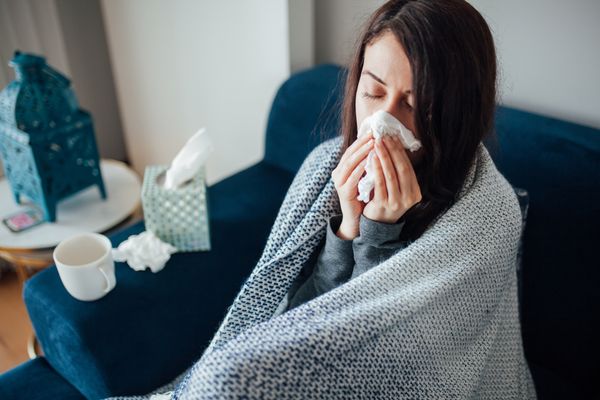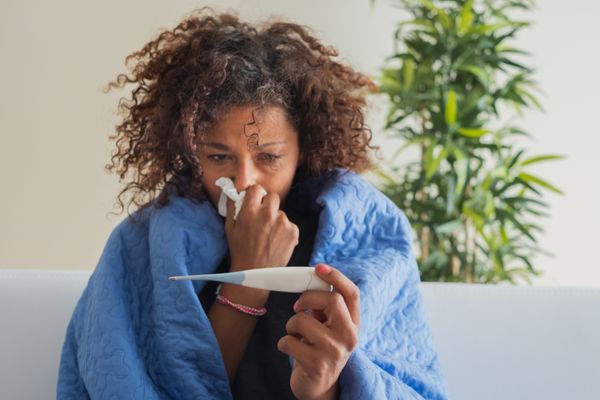‘Tis the season for fun, festivities … and the flu.
We know — whomp, whomp — but the flu is nothing to sneeze at. For some people, the flu can be a serious, life-threatening illness. The Centers for Disease Control and Prevention (CDC) estimated as many as 670,000 people were hospitalized with the flu between October 2022 and April 2023. And during that time, as many as 98,000 people died from a flu-related illness.
Luckily, there are steps you can take to protect yourself and your loved ones during flu season. “Prioritize taking care of you,” said HealthyWomen CEO Beth Battaglino, RN-C. “We are always thinking about everyone else, but if you go down with the flu, the whole family suffers.”
Battaglino noted that nothing is 100% effective in preventing the flu, but here are her tips for staying as healthy as possible — and hopefully flu-free — through the winter.
1. Get vaccinated
If you get sick, the flu vaccine helps reduce the length and severity of the flu. If you get the vaccine, you may go down for two or three days and that is huge when you’re taking care of others. If you don’t get the flu vaccine, you could be sick for much longer.
Read: Nicole Ari Parker on Choosing to Protect Herself and Her Family from Covid >>
It’s easier than ever to get a flu shot. You can get the flu vaccine at your healthcare provider’s office, local health department or even your favorite pharmacy, which might even be in your favorite grocery store. Many of these places take walk-ins, but if you don’t want to wait, you can make an appointment before you go.
2. Wash your hands frequently
Your hands are full of germs, so wash them with soap and water for at least 20 seconds.
To make sure you’re washing long enough, try singing “Happy Birthday” (twice). I use it as my go-to song because it makes me smile and it’s usually someone’s birthday when I’m working on the floor at the hospital.
When you’re in a public place, one tip that I’ve learned from my mom is to tear off an extra piece of paper towel or tissue and use that as a barrier between the handle and your clean hand.
3. Avoid touching your face
It's so important to try to keep the germiest part of your body (your hands!) away from your eyes, nose and mouth. It’s like a vacuum — the germs go right into your system.
If you touch your face a lot, try to use a tissue or something on your hand to avoid spreading germs.
4. Clean and disinfect surfaces
The flu virus can hang out on surfaces for up to 48 hours. Regular cleaning can help reduce the spread of the flu. Also try using products with hydrogen peroxide, chlorine and other ingredients that kill the virus.
5. Manage your stress
Stress can harm your immune system, which puts you at greater risk for getting sick. Exercise is a good way to relieve stress. Take a walk or go for a quick run. Whatever helps you breathe and relax — add it to your daily routine.
6. Wear a mask
If you’re not feeling well and think you could be coming down with something and you’re traveling or in a public place, wear a mask. It can help prevent the virus from spreading to people around you.
7. Crack the windows
Car full of people or in a rideshare? Roll down the windows a bit to encourage the fresh flow of air. If someone is coughing or may be contagious and you don’t know it, you’re less likely to get sick with good airflow.
8. Take care of your overall health
We all tend to overlook hydration, but drinking enough water is important to your overall health. If we can stay hydrated and eat well (If you feel like you’re not eating well, throw in a multivitamin) and exercise, all of these things can improve overall health and wellness.
Resources
- How to Avoid Catching the Flu ›
- What to Do at the First Signs of Flu ›
- Getting Ready for Flu Season ›
- Is it Covid, RSV or the Flu? - HealthyWomen ›
- 3 Reasons to Get the Flu Shot - HealthyWomen ›







